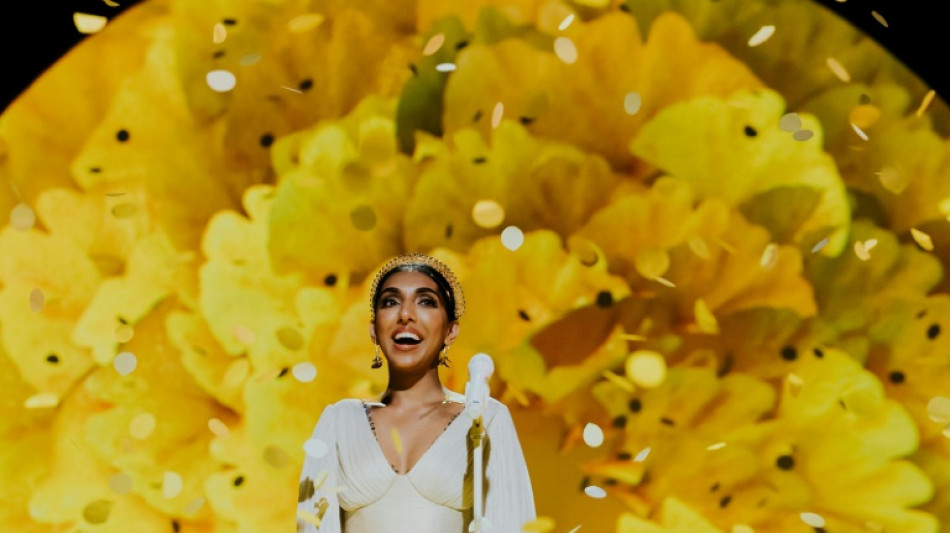

Canadian 'Instapoet' Rupi Kaur tackles censors -- on and offline
From a run-in with Instagram over a picture of menstrual blood, to a push to ban her books from American schools -- Canadian poet Rupi Kaur has knocked heads with would-be censors since bursting onto the global literary scene.
The Punjab-born Kaur, the best-known of a new generation of so-called "Instapoets," shot to fame with her self-published first collection of writing in 2014.
Sexual violence, mental health, immigration -- no topic is taboo, as far as the 29-year-old is concerned, and her candor has earned her a devoted online fan base, with some 4.5 million Instagram followers.
But her no-holds barred approach is not to everyone's liking -- and pressure groups in several US states, including Texas and Oregon, have banned or are seeking to ban her first book, "Milk and Honey," from schools and libraries.
"It breaks my heart that parents and lawmakers are attempting to ban this book," she said in an interview with AFP following a stage show in Ottawa, where she presented her latest book "Home Body" to a mostly-female audience.
She sees the ban as a refusal to contemplate "sexual assault and violence experienced by a young woman."
"But this is a larger problem. We're stepping into this territory where we're banning culture and expression."
- Quiet teen, loud poet -
Born in northeast India, Kaur immigrated to Canada at age four with her Sikh parents and grew up in a suburb of Toronto.
"I grew up going to protests and talking about revolution and human rights at our dinner table. And that has always been a thread in my work," she said.
The eldest of four children, the "quiet, shy" teenager found her voice through poetry, which allowed her to "be as loud as I wanted."
Admiring the poems of Lebanese-American bard Khalil Gibran, Kaur writes about her own experiences in the first person, without capitals, in a nod to her mother tongue, Punjabi.
Proud of her roots, she regrets that there "aren't enough women of colour represented in publishing and media." But she does find inspiration in the news itself.
"My poetry is a response to what's happening in my world," she explains.
"To see Roe vs. Wade being overturned angered me to a whole different level," she said of the landmark 1973 US Supreme Court ruling on abortion rights now under review.
"I'm trying to write something that encapsulates my feelings on it, but it's just so infuriating that I haven't been able to really create the piece that I want."
- Instagram censorship -
From her breakout collection "Milk and Honey" to her second book "The Sun and Her Flowers," Kaur has sold more than 10 million copies, and her works have been translated into more than 40 languages.
Thousands flock to her spoken word performances, also buying up her books and memorabilia such as t-shirts and temporary tattoos.
"Last night, I did a show in Chicago, talking about mental health and abuse and surviving all of that. And there's over 2,000 people in the audience... connecting and telling me how we're not alone in our experiences of anxiety and depression. I think that's pretty cool," she told AFP.
Her feud with Instagram over a photo of herself lying on her back, her jogging pants stained with menstrual blood, arguably gained her more admirers, as the image and her scathing response to its removal from the social media site went viral.
Kaur's poems "are not very complex, the figures of speech are not very sophisticated, but maybe that's exactly what the public likes," said Stephanie Bolster, a creative writing professor at Concordia University in Montreal.
Her straightforward and short poems are not "intimidating" and her "accessible" style attracts new readers to the medium, she said.
That was the case for Christine Blair, a 27-year-old nurse for whom Kaur's universe was "a gateway" to poetry.
By addressing topics such as rape and interpersonal relationships, Kaur is "very vulnerable and I like that about her," Blair said at the National Arts Centre show in Ottawa that kicked off a world tour.
Kaur, dressed in a leopard print skirt, tells the audience before sharing personal anecdotes and memories of a childhood uprooted: "Why don't we jump into my therapist's favourite topic, my mental health."
R.Abate--IM




